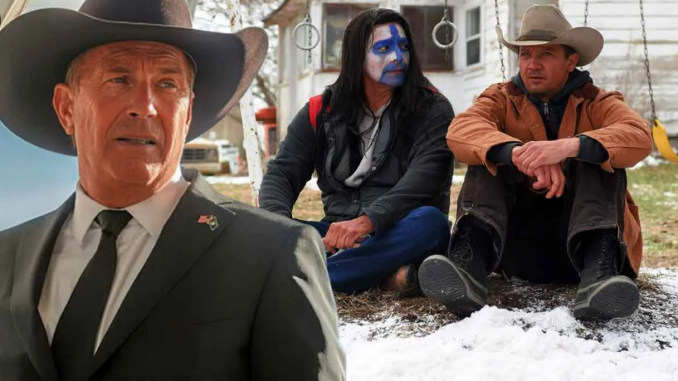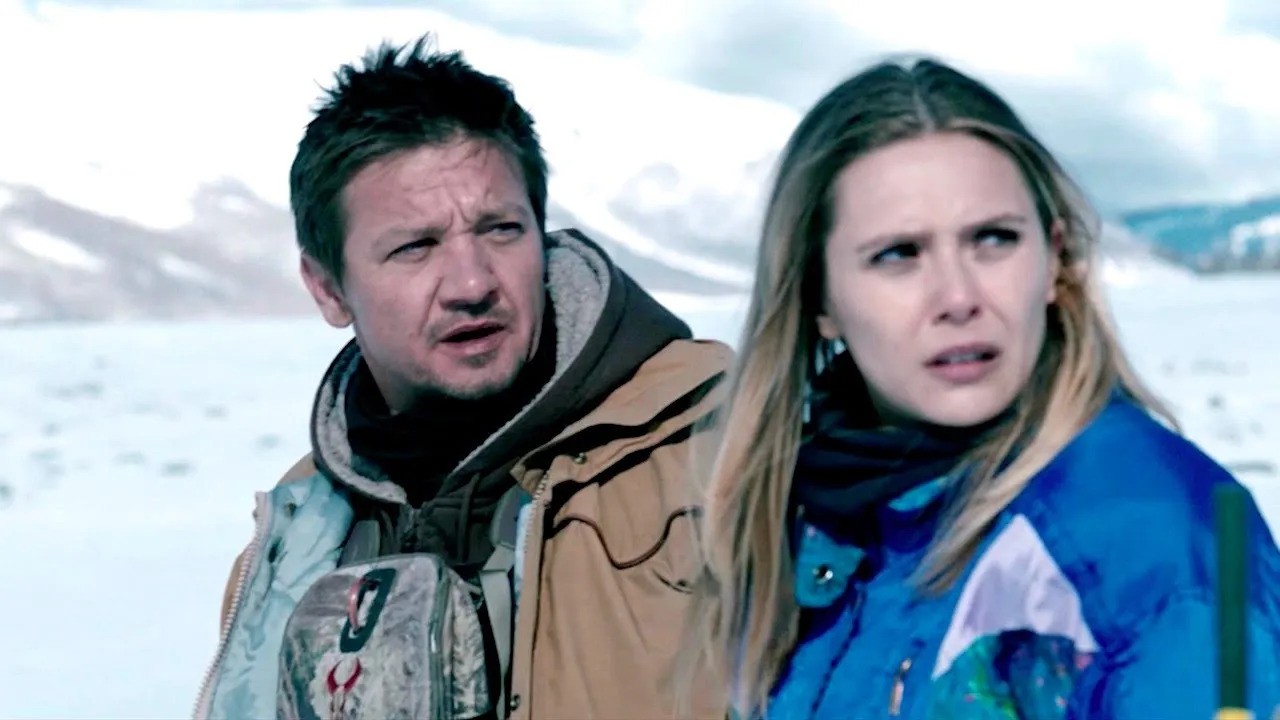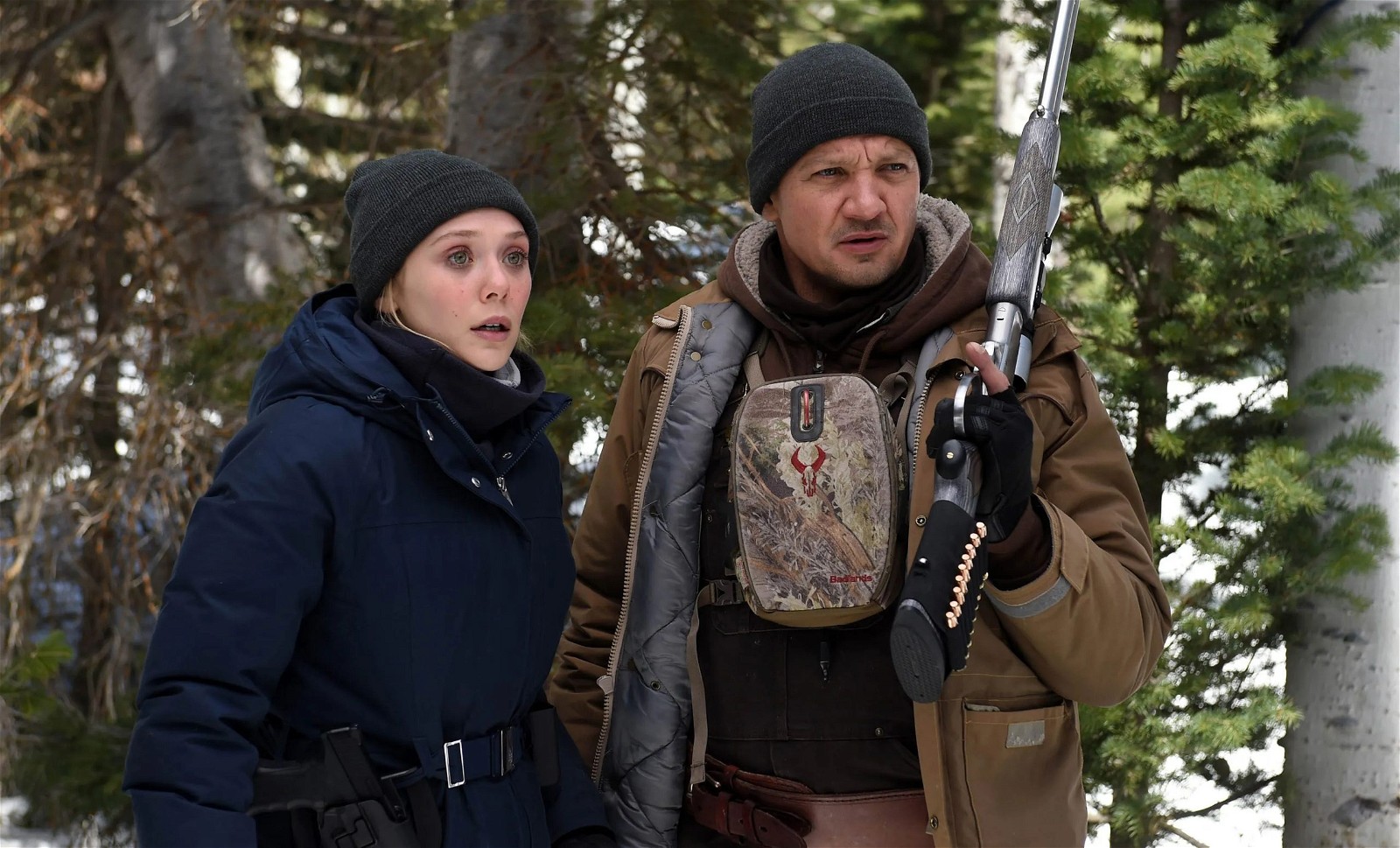
Making Yellowstone was a walk in the park compared to his feature directorial debut with Jeremy Renner.
Taylor Sheridan is now an in-demand filmmaker who has created his own TV empire at Paramount. He is the creator of the network’s flagship show Yellowstone and its spinoffs 1883 and 1923. He also created other successful shows for the network including Tulsa King, Mayor of Kingstown, and Special Ops: Lioness.

Before Yellowstone, he directed the neo-Western crime drama Wind River starring Jeremy Renner and Elizabeth Olsen. While Yellowstone has a much bigger scope and narrative than the film, Sheridan found making the film far more challenging than the series as he had no financial support and limited time to make it.
Taylor Sheridan Found Wind River More Challenging to Put Together Than Yellowstone

Before being a household name in the industry with the huge success of Yellowstone, Taylor Sheridan was struggling to find his place and make a name as a filmmaker in the industry. He made his feature directorial debut with 2017’s Wind River, a crime drama starring Jeremy Renner and Elizabeth Olsen.
The film chronicles the harrowing revelations and outcomes following an investigation into a murder on the Wind River Indian Reservation in Wyoming. Sheridan was not an established name at the time he made the film and he detailed the challenges of making the film in an interview with Deadline, Sheridan revealed that his experiences on that film were a complete contrast compared to his time on Yellowstone.
When he jumped to Yellowstone, he had Paramount backing him up and he had the time to realize and carry out his vision for the show. However, on Wind River, he had no money and resources and had to scrap his way to make the film in the way he intended. Sheridan said,
“Wind River was a real challenge in every way, the opposite of what Yellowstone was. We had no money, no time and I was trying to find my voice as a filmmaker. With Yellowstone, I had time and money. I was able to see a vision through without those restrictions.”
Despite the challenges Sheridan faced while shooting Wind River, it was a hit at the box office, grossing $43 million against a $11 million budget (via Box Office Mojo). The success of the film elevated his position in the industry and thus when he wanted to do Yellowstone, people trusted him to deliver. Thus, his struggles in Wind River were worth it as he got a better platform and opportunities with his next project.
Jeremy Renner Was Drawn Into His Complex Yet Vulnerable Role in Wind River

In Taylor Sheridan’s Wind River, Jeremy Renner starred as Cory Lambert, a U.S. Fish and Wildlife Service tracker, who along with Elizabeth Olsen’s Jane, investigates the murder of a teenager along the snowy Wind River Indian Reservation. His character is emotionally driven to solve the case as his own teenage daughter had died similarly some years ago with the case still unsolved.
In an interview with Collider, Renner revealed that the complications of a masculine man with a deeply sensitive inner core were incredibly exciting to play. The excellent script written by Sheridan and the complex nature of the character allowed him to stretch his acting abilities behaviorally. The actor said,
“There’s a … I mean initially it was the father aspect of the role and then sort of the essence of the complications of being a very masculine man but being very very very sensitive and very actionable about how he went about things. It was just a complicated character and as well as it was written and so it setup and allowed for me to explore a lot more behavioral stuff with the character. It was … The writing was just fantastic and then it was a very just important story that I really wanted to be a part of.”
The film had one of Renner’s best dramatic works similar to his Oscar-nominated performance in The Hurt Locker. He and Sheridan have further collaborated on the hit Paramount+ show Mayor of Kingstown. The previously released two seasons of the show have been loved by fans and a third season is coming on Paramount+ on June 2, 2024.